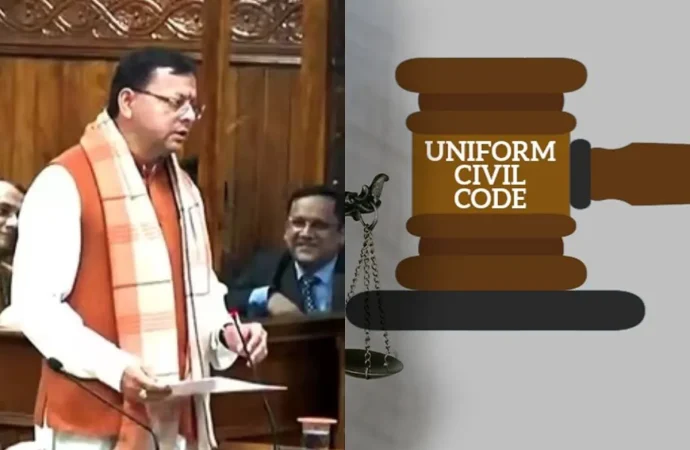Uttarakhand is set to become the first state in India to implement the Uniform Civil Code (UCC). The UCC aims to unify laws related to marriage, divorce, inheritance, and maintenance across different communities, faiths, and tribes. This move is part of a broader commitment made by the BJP during the 2022 assembly elections, where the
Uttarakhand is set to become the first state in India to implement the Uniform Civil Code (UCC). The UCC aims to unify laws related to marriage, divorce, inheritance, and maintenance across different communities, faiths, and tribes. This move is part of a broader commitment made by the BJP during the 2022 assembly elections, where the party secured a second consecutive term in power.
Purpose of the Uniform Civil Code
The UCC is designed to provide consistency and fairness in the legal system, with a primary focus on safeguarding women’s rights. Chief Minister Pushkar Singh Dhami emphasized that the UCC is not meant to target any specific community but instead aims to provide equal rights and protection for all citizens, especially women, who make up 50% of the population.
Focus on Security and Immigration Control
Alongside the implementation of the UCC, CM Dhami highlighted the government’s commitment to tackling concerns about illegal immigration. The state will take strong action against illegal immigrants from Myanmar and Bangladesh. Investigations will be carried out in areas where there have been reports of suspicious activities, particularly in certain madrasas. Authorities have been instructed to act if any irregularities are found.
Key Points from Chief Minister Dhami’s Statement:
- Uniform Civil Code will unify laws governing marriage, inheritance, and maintenance across communities.
- Women’s Rights: The UCC is aimed at empowering women, ensuring more rights and protection.
- No Targeting of Communities: The law is intended to apply equally to everyone without targeting any specific community.
- Immigration Control: The government will focus on identifying and acting against illegal immigrants, especially Bangladeshi and Rohingya residents.
This move marks a significant step in the ongoing national discussion on the Uniform Civil Code, with other states potentially following suit.

















Leave a Comment
Your email address will not be published. Required fields are marked with *